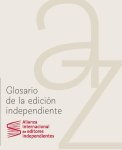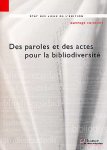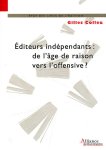
Why have a Guide ?
This Guide is based on ideas, discussions, round tables and workshops prior to and during the International Conference of Independent Publishers in Pamplona-Iruñea (23-26 November 2021).
The objectives of this guide are to :
• suggest lines of approach and actions for publishers who are members of the International Alliance of Independent Publishers, and to book professionals more broadly ;
• help implement and put into practice the principles and values defended by the Alliance’s members ;
• illustrate these principles using examples (experience, projects, ideas, etc. from professionals) which may serve as sources of inspiration.
How ?
The “entries” in this Guide are thematic. Given that the intention of the Guide is to present in a practical way the principles of the Pamplona-Iruñea Declaration, the main entries are currently as follows :
• decolonial publishing
• ecological publishing
• feminist and LGBTQI+ publishing
• free publishing
• social publishing
• solidarity-based publishing
This Guide will evolve ; its form is not fixed. Indeed, several of the Guide’s entries require input that will come from the work of the thematic working groups which will be tasked with making suggestions and enhancing these entries. It will then be possible to update and adapt the Guide over time in line with the evolution of practices and ideas inside the Alliance (in particular through post-conference thematic working groups).
Prerequisite
The Alliance is a unique intercultural network, whose specificity and strength lie in respect for diversity.
Kindness, curiosity, listening and respect for points of view, as well as equal opportunities for speech, must be the basis of every exchange within the Alliance. There can be no place for hate speech or non-inclusive discourse, which would be against the fundamental principles of the Alliance.
This prerequisite is the basis on which the Alliance’s members organise themselves and work together – on the creation of this Guide, among other things.
Warning
The Guide to Good Practice is intended as food for thought and discussion. It cannot commit the publishers who are members of the Alliance to all the proposals and recommendations it contains. Indeed, the International Alliance of Independent Publishers is aware of the geographical diversity of its members and, consequently, of their cultural diversity. It is also fully aware of the impossibility of implementing certain measures (e.g. on book ecology, etc.) in some countries for many reasons related to the political, social, economic, cultural environment…
Read the Guide
























